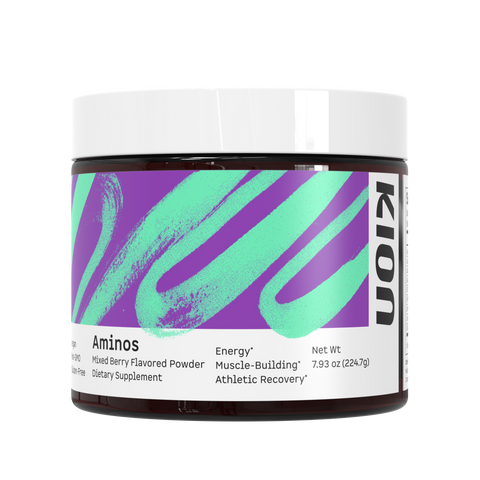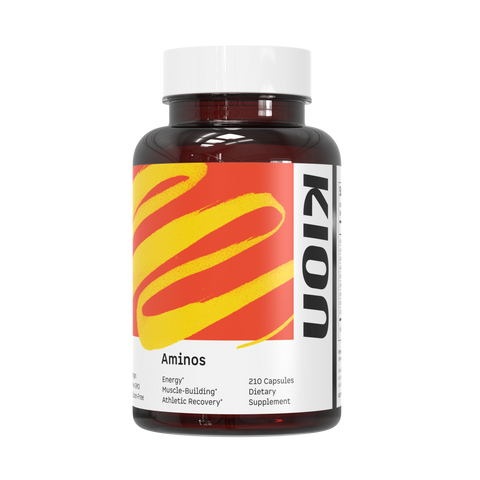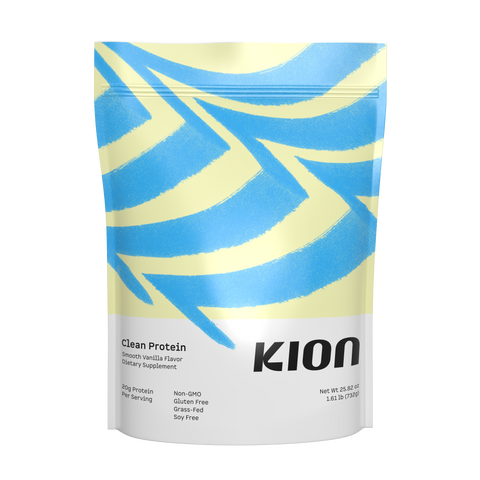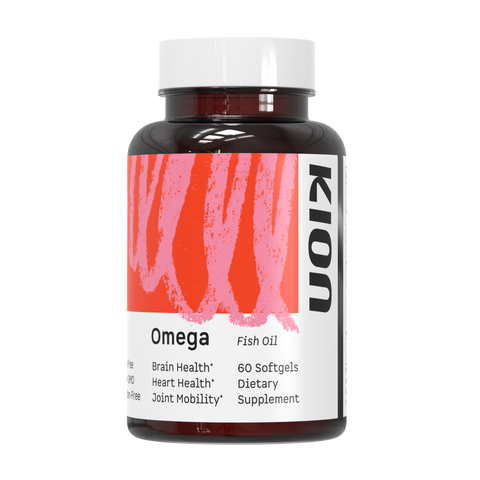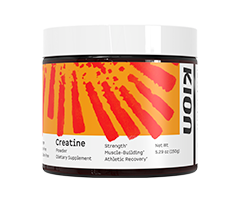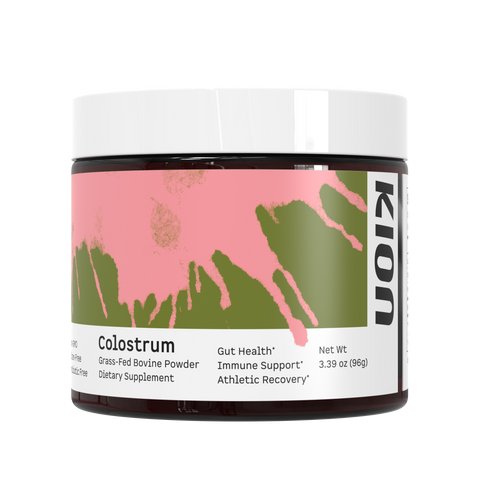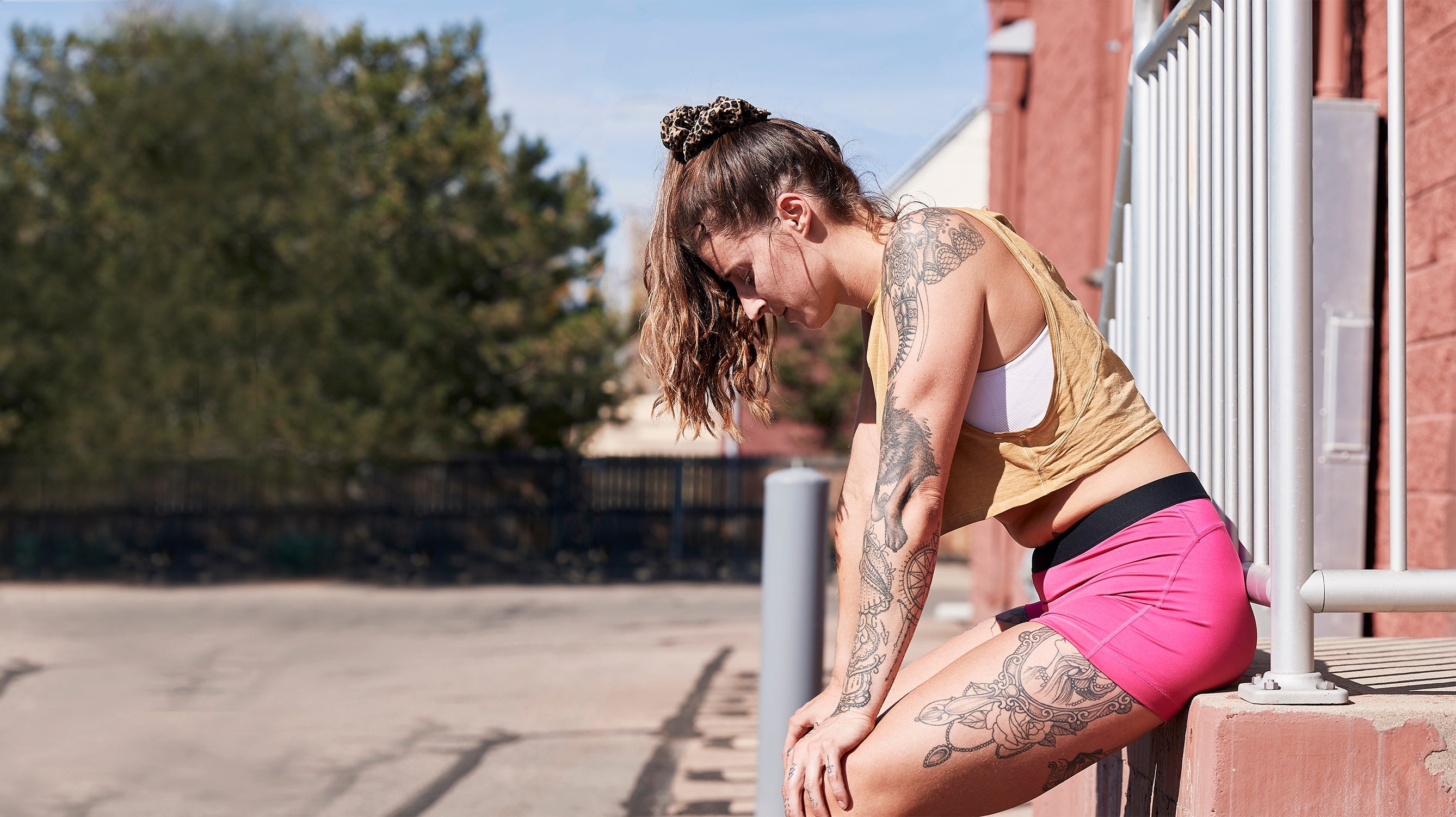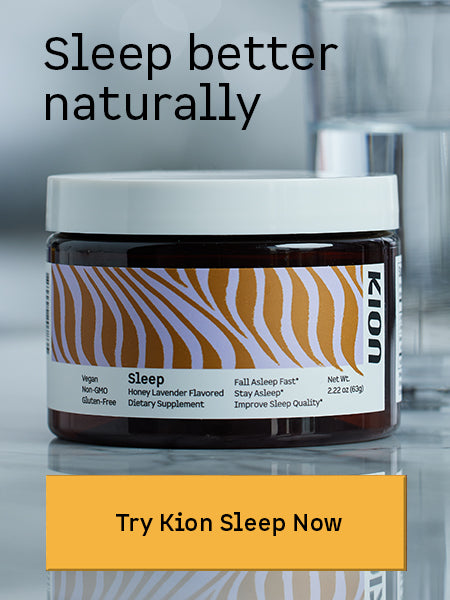What do driving under the influence and sleep deprivation have in common? The answer might surprise you.
Everybody knows that getting behind the wheel after drinking is a bad idea. Just a few drinks are enough to significantly impair our cognition, judgment, and motor performance.
But many people still do it anyway¹. Why?
Because they feel fine enough to drive—they're blind to their disability.
Let that soak in for a second...
A few drinks are enough to objectively compromise one's thinking and functioning. However, because of subjective bias and poor judgment, a person may think they're okay and proceed to make bad decisions with potentially devastating consequences.
So what does this have to do with sleep?
The average American adult reports getting 6.5 hours of sleep each night, despite most experts recommending 7 to 9 hours for optimal health.
And those who get six or fewer hours of sleep for two consecutive weeks function as well as those who have been sleep-deprived for 24 hours straight, which is the cognitive equivalent of being legally drunk.² ³
Just like the drunk driver who underestimates the impact alcohol has on their judgment and motor function, the sleep-deprived are just as bad at acknowledging the harmful effects of sleep deprivation on their performance and cognition.²
In other words, the average person is likely stumbling through life legally drunk without knowing it.
Why does that matter?
Because we’re all making…
Big and little life decisions.
Big and little work decisions
Big and little health decisions
Big and little relationship decisions
All while “under the influence.”
We think we’re fine, but we’re not! Our judgment, cognition, and motor performance are severely handicapped, and it impacts our decision-making abilities every day.
In sum, sleep deprivation can be just as detrimental to your cognition and motor function as alcohol. However, as you're about to learn, it’s even worse for your health.
The Health Risks of Insufficient Sleep
The catastrophic effects of sleep deprivation on your health are frightening.⁴
When it comes to your brain, insufficient sleep...
- Impairs decision making
- Compromises concentration
- Amplifies emotional reactivity
- Distorts emotional processing
- Impairs motor function and performance
- Is associated with dementia and Alzheimers
- Makes you more forgetful and less able to learn
- Contributes to moodiness, anxiety, and depression
- Makes you more impulsive and less able to stick with healthy behaviors
Sleep deprivation also wreaks havoc on our bodies and has been associated with...⁵ ⁶
- Chronic pain
- Premature aging
- Compromised immunity
- Increased risk of cancer
- Disruption of sex hormones
- Weight gain, diabetes, and obesity
- Increased risk of early death by any cause
- Increased likelihood of death by heart attack
- Maladaptive epigenetics (the activation and deactivation of specific genes)
Crazy, right!?
Leading sleep researcher, professor, and author Matthew Walker frames it this way...
“We often think of the impact of a lack of sleep on things like behavior, driving, or making food choices. . . but there is something about a lack of sleep that will get into cells themselves and alter intracellular functioning. If a single factor (sleep) can have its impact all the way from complex cognitive issues like decision making, all the way down to something like intracellular function, my goodness you need to look out if you’re depriving yourself of that one function.”
Walker is uncompromising in his pursuit of at least eight hours of sleep each night.
“If you understood what I knew about sleep, and all-cause mortality, as well as most disease processes, you would realize that I’m being nothing short of selfish... I don’t want to die young, and I don’t want sickness and disease in my life.”
And neither do the rest of us.
So, how do you know if you need to make sleep a higher priority?
Start by assessing your sleep hygiene.
How’s Your Sleep Hygiene?
Sleep hygiene refers to the habits that help and harm our sleep.
Good sleep hygiene can lead to the best sleep of your life.
Lack of sleep, trouble falling asleep, and waking up throughout the night are symptoms of poor sleep hygiene.
So, how’s your sleep hygiene?
Many sleep physicians use questionnaires to assess their client’s sleep problems. Check out this sleep hygiene questionnaire that we’ve adapted for you.
If you answer yes to three or more of the following statements, poor sleep hygiene is likely negatively affecting your sleep:
- You sleep seven hours or less
- You wake up or go to bed at inconsistent times
- You frequently snooze your alarm
- You take naps often (or would if you could)
- You sleep in on the weekends (or wish you could sleep in on the weekdays)
- You don’t get much natural sunlight or spend much time outdoors
- You exercise late in the day
- You frequently drink caffeinated beverages or take nootropics to increase alertness or offset feelings of fatigue and drowsiness
- You frequently drink alcohol or use recreational drugs to wind down at night
- You use screens (TV’s, computers, tablets, or phones) close to bedtime
- You eat large meals within three hours of bedtime
- You sleep near or next to your smartphone
- You use your bed for things other than sleeping (watch TV, read, eat, or study)
- You do important work before bedtime (pay bills, manage your schedule, or study)
- You watch the news or scroll your social media feeds close to bedtime
- You ruminate (think, plan, or worry) when you’re in bed
- You often go to bed feeling stressed, angry, upset, or nervous
Did you answer yes to three or more of those statements?
If so, you’re not alone!
So, what can you do?
Read on to learn about some of the steps you can take to jumpstart your journey to better sleep.
3 Sleep Hygiene Habits to Help You Sleep Better
The following sleep hygiene tips represent the easiest habits to implement and have the most significant potential for impact.
Tip #1: Turn Off All Screens Two Hours Before Bed (& Develop a Power-Down Routine)
The Science
Your circadian clock (or circadian rhythm) is mostly responsible for helping you feel alert during the day and sleepy at night.⁷ This clock is mainly regulated by light exposure.
Circadian clocks are most sensitive to light in the evening (dusk), night, and early morning (dawn). Therefore, unnatural light exposure during this time can disrupt our circadian rhythm and inhibit our natural melatonin production (a hormone that helps regulate our sleep/wake cycles).⁸
The truth is, most people are unknowingly disrupting their circadian rhythm and harming their sleep by not paying attention to light exposure. Consider all the unnatural light exposure you often get in the few hours before bed:
- Binge-watching Netflix
- Sending those few extra emails
- Scrolling our Instagram feeds
- Reading under LED lights in your bedroom
These activities might feel like “winding down” before bed, but in reality, they turn on circadian alerting signals and turn down melatonin production. This combination makes it difficult to feel sleepy when you need to go to sleep. Instead of a 10 pm bedtime, you don’t fall asleep until midnight or later, capping our sleep opportunity to six hours.
Putting Science Into Practice:
By controlling your light exposure, you can restore your natural circadian rhythm, which will help you feel ready to go to bed when you need to go to bed.
Here’s how:
- First, determine your ideal bedtime by working backward from your wake up time. If you need to wake up at 6 am to get the kids to school and make it to work on time and you want to give yourself an eight-hour sleep window, you should strive to be asleep by 10 pm.
- Then, set an alarm to go off two hours before your ideal bedtime. In this example, that would be 8 pm. When the alarm goes off, turn off your TV, close your laptop, get off your phone, or all three at once because that’s how many screens you usually have in your face two hours before bed.
- Instead of pacing around waiting for 10 pm to roll around, reward yourself with a power-down routine — a sequence of soothing rituals that prime you for sleep.
Healthy options include:
- Meal prep for the next day.
- Take a warm shower or bath.
- Drink herbal tea or a warm beverage that helps down-regulate the nervous system.
- Do some light reading. This is a great time for that guilty pleasure fiction you’ve been depriving yourself of. If reading is too stimulating, listen to an audiobook.
- Connect with someone. Play a card game with your kids, touch-in with your partner or call your parents (as long as talking with your parents won’t rev you up).
- Try some relaxation practices. There are plenty of meditation apps that specifically support sleep. It’s OK if you’re not into meditation. Many of these apps have other tools like “sleep stories” or simple breathing exercises to help you relax and transition into sleep.
Tip #2: Get Sunlight Exposure Within One Hour of Waking Up
The Science
Getting natural sunlight shortly after you wake up is another way of using light exposure to optimize your circadian rhythm. However, with this habit, we’re using our sensitivity to light to our advantage by getting a healthy dose early in the day.
Light exposure after waking triggers our circadian signals. They slowly build throughout the day, peak approximately 16 hours after our first light exposure, then quickly fade giving way to sleepiness. The earlier you get that clock ticking, the better chance you will catch the low point of the circadian wave and align it with your bedtime.
Putting Science Into Practice:
Spend 2-10 minutes outside within the first hour of waking. Cloudy? No problem. Regardless of the weather, there will be enough sunlight to activate your circadian clock.
The trick with this habit is to anchor it to a solid part of your morning routine.
Here’s how:
- Review your current morning routine and identify the first 3-5 things you do immediately after waking up.
- Identify the best spot to insert some outdoor time. This is called your “habit anchor.”
- Create an implementation intention and set (ideally visual) reminders. For example, grab a sticky note and write “after I start the coffee, I’ll walk around the block” and post it on your coffee maker. Alternatively, you can identify something you already do inside that can be done outside (such as yoga, stretching, or meditation).
- Begin with two minutes of outdoor exposure. Initiating a new habit with the minimum effective dose will make it easier to do.
Tip #3: Ease Up On the Caffeine
The Science
It might feel like caffeine gives you superpowers, but too much of it too late in the day can mess with your sleep.
Here’s how caffeine works:
- The neurotransmitter adenosine accumulates in our brains throughout the day and functions like a sleepiness signal.
- The greater our adenosine levels, the sleepier we feel, and the easier we can fall asleep.
- Caffeine blocks adenosine receptors in the brain. According to Matthew Walker, this is like “hitting the mute button on sleepiness.”
Contrary to how we feel, caffeine doesn’t technically “give you energy.” Instead, it just numbs you to whatever natural levels of fatigue you'd normally feel.
Unfortunately for sleep, that numbing effect doesn’t wear off for a long time. Caffeine has a half-life of roughly five hours and a quarter-life of about 10 hours.
So, if you drink a full cup of coffee at noon to make it through the afternoon slump, a quarter of that caffeine is still in your brain at 10 pm. That’s equivalent to drinking a quarter cup of coffee at the time you should be getting into bed.
This may be a non-issue for those who are genetically less sensitive to caffeine. But for the rest of us, giving up that afternoon caffeinated cup of joe might need to be a non-negotiable if we genuinely value our sleep.
Putting Science Into Practice:
You don’t have to ditch your coffee...just ditch the caffeine.
By switching to decaf coffee, you can honor your afternoon ritual and enjoy the same health benefits of regular coffee without interfering with your sleep.⁹
Alternatively, you can take this opportunity to try something new. From herbal teas to mushroom extracts and adaptogens, the market is full of health-promoting, caffeine-free beverages that can lift you up without messing you up.
Make This Actionable
Anyone struggling with their sleep can take steps to get their sleep back on track by replacing poor sleep habits with healthy ones. However, instead of looking for a single cure-all hack, it’s best to frame this project as a journey of many steps taken over weeks and months. Take your time and be kind to yourself.
Start by picking the one habit that will be the easiest to implement and stick with for one week.
Make it a game!
If you can stick with a single habit for seven days, then you graduate from a white belt to a blue belt where you’ll pick up a second sleep hygiene habit.
Rock that one for a week and you become a purple belt.
Keep adding and progressing until you become a black belt who sleeps like a baby and lives like a superhero.
Ki Points
The quality of your life—your health, energy, capacity, and productivity, how you show up in the world, and how you respond to what the world serves you—depends on your sleep.
Your sleep quality is mostly a function of your sleep hygiene.
By progressively improving your sleep habits over time, not only will you sleep more soundly and have energy throughout the day, you’ll be taking significant steps towards improving your life quality and longevity!
However, most people don’t optimize their sleep overnight. Those seeking quick fixes are susceptible to giving up too early and settling for a sleep-deprived existence.
The best approach is to play the long game by sequentially replacing poor sleep habits with good ones.
Where should you start? Consider these three powerful sleep hygiene habits and pick the one you’re most confident you can stick to for at least one week:
- Turn off screens two hours before bed and replace your screen time with a healthy power-down routine.
- Get sunlight exposure within one hour of waking up.
- Avoid caffeine too late in the day.
There you have it, friends!
Best of luck on your sleep journey, and check back in to let us know how it’s going and how we can help.
Sleep better naturally with Kion Sleep
Buy NowScientific Research
https://americanaddictioncenters.org/learn/drunk-driving-statistics-in-america/
https://pubmed.ncbi.nlm.nih.gov/12683469/
https://www.ncbi.nlm.nih.gov/pmc/articles/PMC1739867/
https://www.healthline.com/health/sleep-deprivation/effects-on-body
http://healthysleep.med.harvard.edu/healthy/matters/consequences/sleep-and-disease-risk
https://www.ncbi.nlm.nih.gov/pmc/articles/PMC2864873/
https://www.nature.com/articles/srep45158
https://www.cdc.gov/niosh/emres/longhourstraining/light.html#:~:text=The%20light%2Fdark%20cycle%20of,more%20alert%20during%20the%20day.
https://pubmed.ncbi.nlm.nih.gov/28826374/



